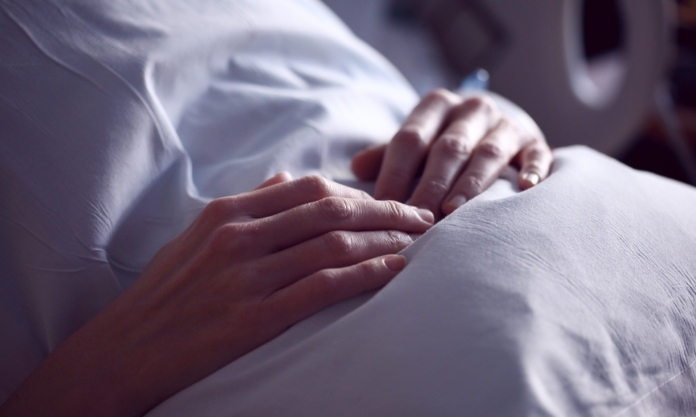We’re at the stage in Nanjing where many, with varying degrees of success, have managed to fight through a bout of COVID. But in recovery mode, there nevertheless remain questions as to unforeseen side effects, answered today by two experts.
Are you feeling a shortness of breath? Tightness in your chest? These perhaps most common side effects experienced even several days after recovering from COVID are of particular concern to pregnant women.
As per Nanjing Daily, the advice for them, from Wu Lan, Obstetric Director and Shi Aiwu, Medical Director, at the Nanjing Maternity and Child Healthcare Hospital (南京市妇幼保健院), also by and large holds true for all.
Q: “How do I know I have become COVID negative?”
Wu Lan: “The reference standards for pregnant women and other people are the same. If body temperature has been normal for more than 3 days, respiratory symptoms have disappeared or are obviously relieved; and if two nucleic acid tests taken more than 24 hours apart both showed a negative result, or the CT value of the nucleic acid was greater than or equal to 35, then COVID negative is the result.”
Q: “Why do I still have a cough after having had COVID? How long will it take to go away?”
Wu Lan: “It varies from person to person. Some pregnant women lose their cough in 2 or 3 days, while some need 3 or 5 days. In fact, coughing is a process of rehabilitation; cleaning the ‘battlefield’ and repairing the airway. Don’t worry about getting better slowly. According to experience, most people get better in 14 days.
“In the case of a serious cough, the secretion of the respiratory tract will be exaggerated if you are lying down flat. Consider raising your head. One good way is to use two pillows, arranged in a T-shape. Your head resting on the horizontal pillow, as the bar of the ‘T’, will be conducive to smooth breathing and elimination of mucus.”
Q: “What can I do to avoid COVID reinfection?”
Wu Lan: “Pregnant women (and others) should continue to maintain good hygiene habits. After recovery, always wear a mask, wash hands frequently, open windows for ventilation, maintain social distance and cough etiquette. In addition, clothes, sheets, towels, tableware and other daily necessities used by any infected household member should be kept isolated as much as possible.”
Q: “Can I return to work immediately after recovering?”
Wu Lan: “It should be noted that within a week or two after rehabilitation, convalescents may still become easily tired. At this time, pregnant women (and others) should pay attention to their work load and only gradually increase their physical activity. Working too hard is an impediment to a full recovery.”
Q: “Why do I still feel a tightness in my chest, a shortness of breath and general weakness after having COVID?”
Shi Aiwu: Many pregnant women (and others) will experience a high fever, painful muscles, fatigue, excessive sweating, headache and a sore throat when infected. Post COVID, some people will continue to suffer from such symptoms as fatigue, weakness and tightness of the chest. These can usually be relieved within 2 weeks.
“If you feel that you are still not in good condition, take a few more days off. Do not immediately engage in very heavy work as soon as you recover, or push yourself in terms of fitness. Once you find that you are tired and sweaty, you should immediately rest.”
Q: “When can I exercise after becoming negative? What problems should I pay attention to?”
Shi Aiwu: “After recovery, it will take at least 2 weeks for many people to return to their previous physical condition. Anything more than moderate and relatively mild sports is not recommended. The previous activity level and workload must be gradually restored.”









